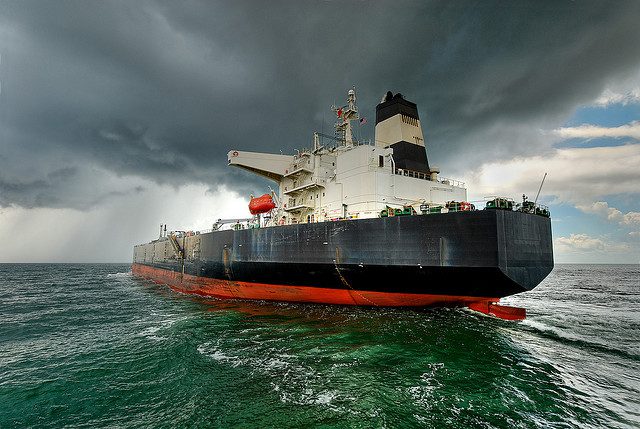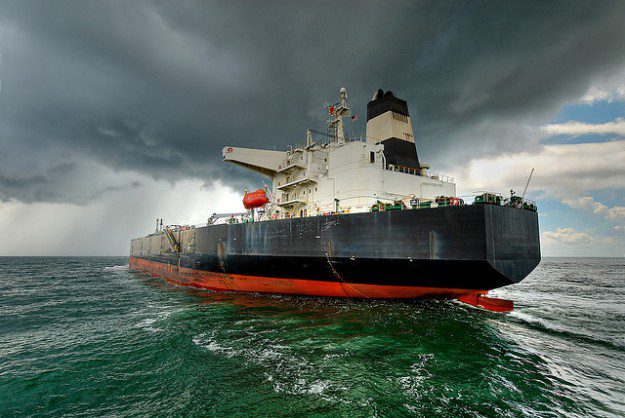China Ramps Up Offshore Wind Projects After Slowdown
(Bloomberg) — China has rebuilt a substantial pipeline of offshore wind projects as the sector recovers from a slowdown that followed the end of national subsidies in 2021, according to...


Photo courtesy OneEighteen via Flickr
HOUSTON (Dow Jones)–The U.S. Coast Guard and the Federal Bureau of Investigation must develop a joint national plan to prevent terrorist attacks on maritime oil supplies, the Government Accountability Office said Wednesday.
Stephen Caldwell, Director of Maritime and Coast Guard Issues at the GAO, said that “the Coast Guard and the FBI have not yet taken action on a recommendation to develop an operational plan to integrate the national spill and terrorism response plans.” He was providing testimony at a congressional hearing held at the Port of Houston on how to the secure the port as well as offshore oil and gas facilities.
The event was chaired by Rep. Michael McCaul (R., Texas), who said the hearing was necessary after a May report from the Department of Homeland Security said that intelligence information showed that members of al Qaeda sought to target oil tankers and commercial oil infrastructure at sea. Each day 25 to 30 tankers transit the Houston Ship Channel carrying roughly 25% Of U.S.’s oil imports, reason why it is crucial to protect the Port of Houston, McCaul said. “We must ensure there are no gaps in our security at this Port, and ensure that terrorists do not wound our economy or harm our citizens by successfully carrying out an attack in Houston,” McCaul said.
The GAO’s Caldwell said that the Coast Guard has shown some progress on recommendations issued by the agency in 2007, such as developing protocols for resumption of trade after a major disruption to the marine transportation system, and working on a national strategy for securing certain dangerous cargoes. The Coast Guard and the FBI also participated in local port security exercises, he said.
But both agencies need to take further steeps, Caldwell said. The Coast Guard needs a better assessment of security risks to offshore energy infrastructure, such as platforms and pipelines, according to the GAO report. “The Coast Guard faces complex and technical challenges in assessing risks,” the report said. “For example, the Coast Guard does not have data on the ability of an [offshore] facility to withstand an attack.”
The Coast Guard must also begin overseeing offshore energy infrastructure that is not currently subject to anti-terrorism requirements, the GAO says. For example, offshore drilling rigs such as the Deepwater Horizon, which exploded and sank last year in the Gulf of Mexico, killing 11 workers and unleashing the worst maritime spill in U.S. history, are not currently considered high risk but after the spill it’s evident they need to be included in the list of possible targets for terrorists, the GAO says.
The Coast Guard has told the agency it’s studying “the lessons learned” from the Deepwater Horizon incident. There are also some offshore facilities that are not subject to security assessments because their production figures or number of personnel varies from year to year. The GAO recommends that those facilities be inspected.
-By Isabel Ordonez, Dow Jones Newswires

Sign up for gCaptain’s newsletter and never miss an update

Subscribe to gCaptain Daily and stay informed with the latest global maritime and offshore news


Stay informed with the latest maritime and offshore news, delivered daily straight to your inbox
Essential news coupled with the finest maritime content sourced from across the globe.
Sign Up